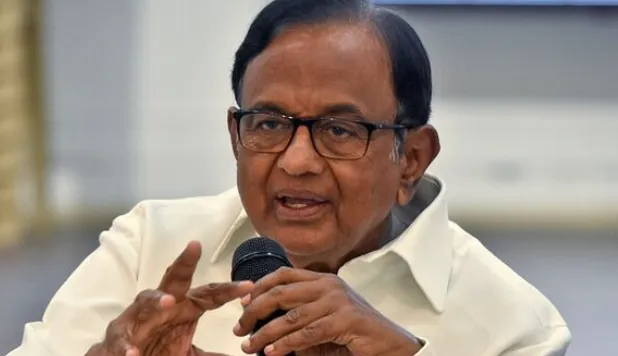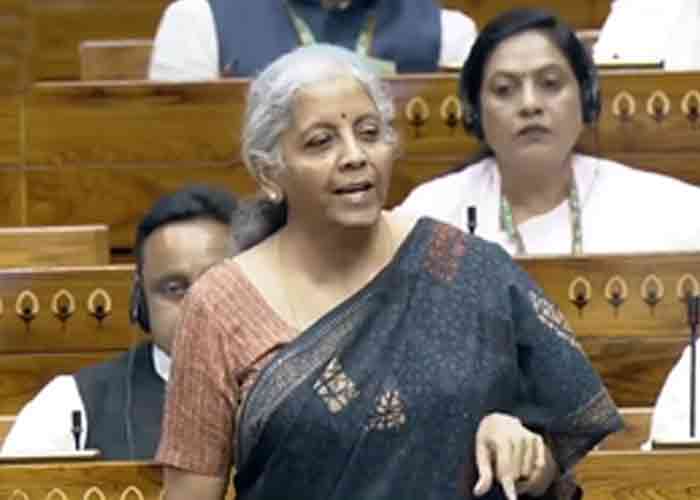





)
)
)


On February 1, 2025, Finance Minister Nirmala Sitharaman unveiled the Union Budget 2025, emphasizing India's position as the world's fastest-growing economy and its ambition to achieve 'Viksit Bharat' (Developed India) [d1eae608]. The budget outlines a total expenditure of Rs 50.65 lakh crore, reflecting a 7.4% increase from FY25, demonstrating the government's commitment to maintaining fiscal discipline while promoting growth [063fb084]. Key measures include significant income tax cuts that exempt individuals earning up to Rs 12 lakh per annum, alongside a new Income Tax Bill designed to simplify tax compliance [d40f017e]. The fiscal deficit is projected at 4.4% for FY26, with a revised estimate of 4.8% for FY25, improved from 4.9% [ad55884d].
The budget aims to revive domestic demand amid sluggish urban consumption, focusing on four strategic priorities: reviving consumption, sustaining infrastructure investment, broadening financing access for Micro, Small, and Medium Enterprises (MSMEs), and reducing regulatory friction [63b3d54]. Significant initiatives include the Dhan Dhanya Krishi Yojana and increased loan limits for Kisan Credit Cards, aimed at empowering 1.7 crore farmers [d40f017e]. Furthermore, it provides income tax relief, allowing savings of Rs 70,000 for those with incomes up to Rs 18 lakh, and revises tax slabs to include nil taxes for income up to Rs 4 lakh and a marginal rate of 30% for income above Rs 24 lakh [d40f017e].
A new Rs 10,000 crore Fund of Funds for startups is expected to enhance investment in the startup ecosystem, while measures to boost tourism, such as visa waivers and loans for homestays, are intended to revitalize the sector post-pandemic [5a0b2fa3]. Rising private consumption has been highlighted as crucial for India's economy amid global uncertainties [d1eae608].
In the lead-up to the budget, discussions had centered around expectations for income tax cuts to support the middle class and stimulate consumption [e01964bb]. The government had forecasted GDP growth for FY26 to be between 6.3% and 6.8%, a decrease from the 8.2% growth reported in FY24 [e01964bb].
Sitharaman indicated that a new income tax bill would be tabled, adopting a 'trust first, scrutinise later' approach to simplify tax compliance [46cb6694]. This reform is expected to introduce a new 25% tax slab for incomes between Rs 15 lakh and Rs 20 lakh, while maintaining the current 30% tax rate for those earning above Rs 20 lakh [46cb6694].
The Budget Session of Parliament commenced on January 31, 2025, with President Droupadi Murmu's address marking the start of discussions [48f32eed]. The Economic Survey emphasized financial inclusion and access to credit for rural households and small businesses, indicating a long-term strategy for economic development [d1eae608].
A significant aspect of the budget is its response to global economic pressures, particularly the ripple effects of former U.S. President Donald Trump's trade and tax policies. These policies have influenced India's fiscal strategy, prompting a focus on domestic manufacturing and clean energy initiatives [74ed0305]. The budget highlights the 'Make in India' initiative and the National Manufacturing Mission, alongside proposed customs tariff changes to enhance competitiveness [74ed0305].
Moreover, reforms to increase Foreign Direct Investment (FDI) in the insurance sector from 74% to 100% are expected to attract more investments [74ed0305]. The budget also emphasizes nuclear energy development, aiming for 100 GW capacity by 2047 and plans for five small modular nuclear reactors by 2033 [74ed0305].
Potential restrictions on H-1B visas could impact India's IT sector, leading to a diversification of IT export markets and a push for local hiring [74ed0305]. Experts have warned that the budget must also address broader economic strategies in light of these global uncertainties, including the impact of Trump's America-first trade policy [864386dc]. The Indian economy is facing new challenges, particularly with a reported GDP growth of 5.4% in the July-September quarter, raising concerns about middle-class demand [48f32eed].
The hospitality sector has been advocating for infrastructure status and tax rationalization to enhance recovery, while startups are calling for simplified taxation and increased investments in digital infrastructure [ecccb452]. Despite positive measures, the budget has faced criticism for being timid on reforms amidst a sluggish economy [063fb084]. Congress has criticized the budget for lacking new ideas, with P. Chidambaram highlighting that the government is targeting the tax-paying middle class and Bihar voters, while raising doubts about the government's capacity to meet its targets [ad55884d]. With inflation concerns looming, the government is under pressure to deliver a budget that not only addresses immediate needs but also lays the groundwork for sustainable economic growth while addressing middle-class tax frustrations and avoiding over-reliance on doles [864386dc].